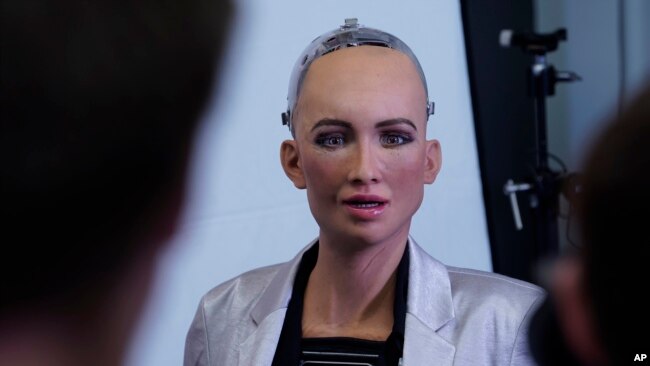米国:AIシステムに新たなガイドライン
”Alexa”にお気に入りの曲を再生するよう命令したり、顔認証技術を利用してスマートフォンのロックを解除したりと、AIは日々の生活を楽にするために日常的に用いられている現実。
確かにメリットが存在しますが、バイアスのリスクやセキュリティ上の懸念といったデメリットも存在しています。
欧州委員会のArtificial Intelligence Act には、世界標準的なルールの策定を試み、国際社会で主導権を握るねらいがあることがうかがえます。
これを受け、日本の経済産業省が2021年7月9日にガイドライン取りまとめましたが、現時点では、欧州でのルールに追従した厳格な規制が策定されるような動きは見られないようです。
"Blueprint for an AI Bill of Rights "も強制力を有していないとの批判があるようです。
VOAで英語を学びましょう!!
各国政府は有害なAIから市民を守るための対策を提案(和訳)
Governments Propose Measures to Protect Citizens from Harmful AI
ジョー・バイデン米大統領の政権は、人工知能(AI)システムの弊害から市民を保護することを目的とした新たなガイドラインを提案しました。
このガイドラインは、"Blueprint for an AI Bill of Rights "(AI権利章典に向けた青写真)と呼ばれています。青写真とは、誰かがどのように設計、構築、または目標に到達するかを示す計画です。この提案は、一連の規則ではなく、具体的な強制措置も含まれていません。AIシステムの開発者に影響を与え、デジタルと市民の権利を守ることを目的としています。
このガイドラインは、ホワイトハウスの科学技術政策室が作成したものです。AIシステムが社会のさまざまな部分にますます拡大する中、発表されました。
"人工知能の時代に米国民を守るための自動化システムの設計、使用、展開 "を導くことを目的とした5つの分野を挙げています。
このガイドラインは、多くの政府機関と協力して過去1年間に策定されたと、政権は声明で述べています。当局者は、市民社会団体、技術者、産業研究者、大手テクノロジー企業などから助言を受けました。
米政府関係者はAP通信に対し、この青写真は、テクノロジー企業が開発・展開するAIシステムに責任を持たせようとする政権の取り組みが前進したことを意味すると述べています。ガイドラインは、AIシステムにおけるバイアスの影響を抑えることを目的としています。
AIを批判する人々は、自動化システムが人種や性別に基づいて人を誤認したり、差別したりした多くの事例を指摘しています。いくつかの研究やニュースでは、AIを搭載したツールに起因する被害が記録されています。
例えば、法執行機関が使用する顔認識システムは、不当逮捕につながったことがあります。ある事件では、自動化されたシステムが、歴史的に黒人の多い大学で学資援助を求める個人を差別しました。また、医療管理に使われるAIシステムが、黒人患者を差別したケースもあります。
政権幹部は記者団に対し、こうした例は一部のAIシステムが "米国人の生活に実害を及ぼしている "ことを示すものだと語っています。同高官は、無責任なAIシステムは、"プライバシーや差別からの自由に対する基本的な権利を含む... "民主主義の価値観に反するものであると付け加えます。
ガイドラインはまた、AI開発者に対し、ユーザーが自分のデータをコントロールできるようなツールをシステムに組み込むよう促しています。そして開発者は、自動化されたシステムが安全かつ透明性をもって使用されることを保証するよう求められています。
テクノロジー業界の専門家の中には、このような措置がガイドラインをルール化した場合、一部のアメリカ企業に打撃を与える可能性があると警告する者もいます。非政府組織である米商工会議所のトップ、ジョーダン・クレンショー氏は、このガイドラインが米国の法律として制定されるのは好ましくない、と述べています。もしそうなれば、AI開発で他国と”競争するアメリカの能力にhandcuff手錠をかける”ことになりかねないでしょう。
ヨーロッパでは、このような提案はもっと先に発展しています。昨年、欧州連合はAI技術を管理することを意味する一連の規則を提案しました。EUの議員たちは現在、自動監視、プライバシー保護、システムの偏りといった分野を網羅するこの提案について議論しています。このルールはArtificial Intelligence Act 人工知能法と呼ばれています。
※Artificial Intelligence Act:2021年4月21日に発表された。
プロバイダー等が規則に違反した場合、制裁金が課される。
現時点ではあくまで提案にとどまるものであり、今後、欧州議会と欧州理事会における立法手続を経て、発効するのは2024年以降になると見られる。
欧州AI規則案の概要 - Business & Law(ビジネスアンドロー)
一部の団体は、EUの提案がテクノロジー企業にbureaucratic官僚的な障壁を作りかねないと警告しています。この提案では、強力な規則を設け、違反者には罰金を科すとしています。
米国を拠点とする政策団体ブルッキングス研究所は最近、人工知能法の一部を批判しました。オープンソースAIに制限を設けるEUの計画は、"AIの未来を左右する権力を大手のテクノロジー企業にさらに集中させる可能性がある "と指摘したのです。
オープンソースAIとは、一般市民や企業がコストをかけずに利用できる人工知能技術のことです。ブルッキングスは、この種のAIを制限することは2種類の弊害をもたらすと述べています。
多くのAIシステムを既存の大手テクノロジー企業の管理下に置くことになり、中小企業が新しいAIツールを開発する機会を奪うことになるでしょう。さらに、提案されているEUのルールは、貴重な研究を制限し、広く使われているAIシステムのオープン性を低下させるとブルッキングスは述べています。
Governments Propose Measures to Protect Citizens from Harmful AI
38 minutes ago
The administration of U.S. President Joe Biden has proposed new guidelines aimed at protecting citizens from the harmful effects of artificial intelligence (AI) systems.
The guidelines are known as the “Blueprint for an AI Bill of Rights.” A blueprint is a plan that shows how someone will design, build or reach a goal. The proposal is not a set of rules and does not include specific enforcement actions. It is meant to influence AI system developers to safeguard digital and civil rights.
The guidelines were created by the White House Office of Science and Technology Policy. They were released as AI systems increasingly expand to many different parts of society.
The plan identifies five areas that aim to guide “the design, use and deployment of automated systems to protect the American public in the age of artificial intelligence.”
The guidelines were established over the past year in cooperation with many government agencies, the administration said in a statement. Officials took advice from civil society groups, technologists, industry researchers and major technology companies.
U.S. officials told the Associated Press the blueprint represents progress in administration efforts to hold technology companies responsible for the AI systems they develop and deploy. The guidelines are designed to limit the effects of bias in AI systems.
Critics of AI have noted many cases in which automated systems have misidentified or discriminated against people based on their race or sex. Several studies and news reports have documented harms that resulted from AI-powered tools.
For example, facial recognition systems used by law enforcement agencies have led to wrongful arrests. In one incident, an automated system discriminated against individuals seeking financial assistance at historically Black colleges. In another case, AI systems used to administer healthcare discriminated against Black patients.
An administration official told reporters such examples demonstrate that some AI systems “are causing real harms in the lives of Americans.” The official added that irresponsible AI systems go against democratic values, “including the fundamental right to privacy and freedom from discrimination…”
The guidelines also urge AI developers to build tools into systems to give users control over their data. And developers are urged to ensure that automated systems are used safely and transparently.
Some technology industry experts have warned that such measures could hurt some American businesses if the guidelines become rules. The head of the non-government U.S. Chamber of Commerce, Jordan Crenshaw, said he would not like to see the guidelines enacted into U.S. law. If this happens, it could “handcuff America’s ability to compete” in AI development with other countries.
In Europe, such proposals have developed much further. Last year, the European Union proposed a set of rules meant to govern AI technology. EU lawmakers are currently debating the proposals, which cover areas such as automated surveillance, privacy protections and system bias. The rules are known as the Artificial Intelligence Act.
Some groups have warned that the EU proposals could create bureaucratic barriers for technology businesses. The proposals would put strong rules in place and fine violators.
The U.S.-based policy group Brookings Institution recently criticized one part of the Artificial Intelligence Act. It said the EU’s plan to put limits on open-source AI could “further concentrate power over the future of AI in large technology companies.”
Open-source AI is an artificial intelligence technology that the public and companies may use without cost. Brookings said that limiting this kind of AI would lead to two kinds of harm.
It would keep many AI systems under the control of big, established technology companies and would deny small businesses the chance to develop new AI tools. In addition, the proposed EU rules would limit valuable research and decrease the openness of widely used AI systems, Brookings said.
Words in This Story
artificial intelligence – n. the development of computer systems with the ability to perform work that normally requires human intelligence
automate – v. to control something using machines and not people
bias – n. a situation in which you support or oppose something in an unfair way because you are influenced by personal opinions
transparent – adj. openness or something that is clearly seen
handcuff – v. to limit someone in the way police do by putting hand restraints on people
surveillance – n. the careful watching of a person or place
bureaucratic – adj. relating to a system of government regulations
